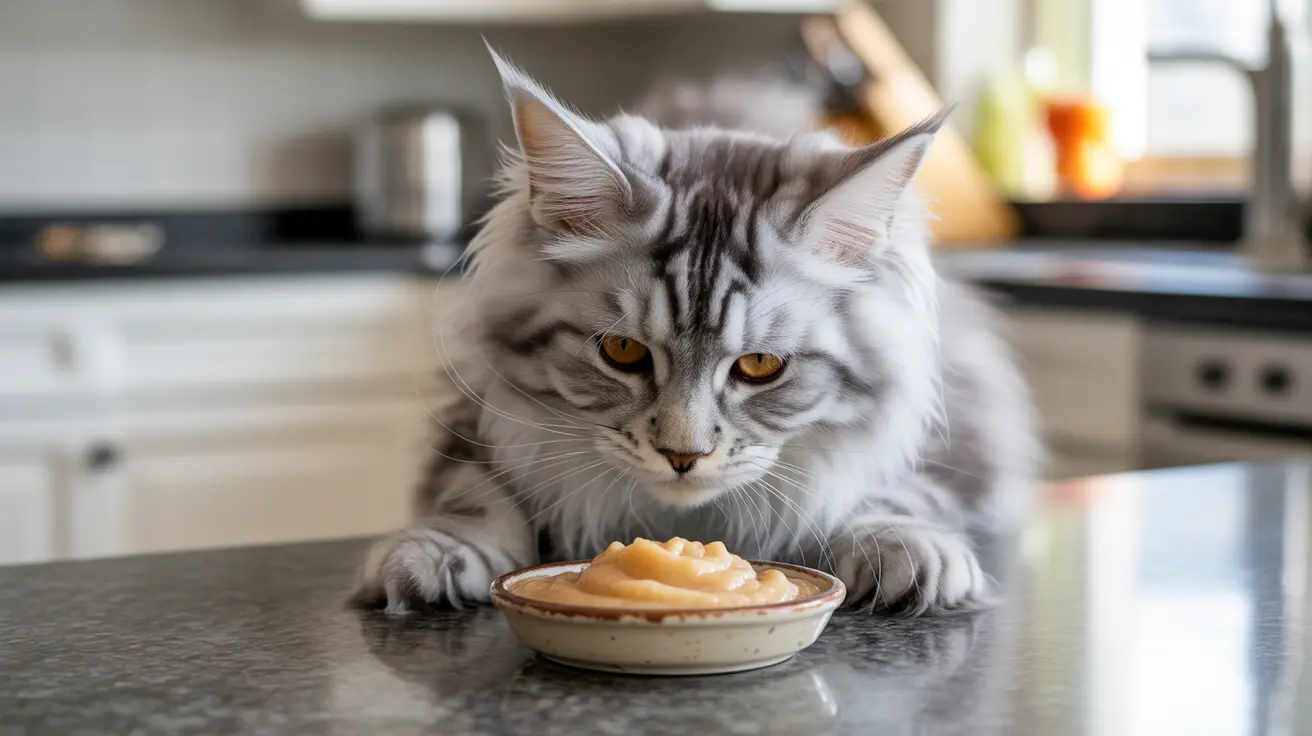Understanding Cats' Nutritional Needs
Cats are strict carnivores, meaning their bodies are designed to derive nutrition primarily from meat sources. Unlike humans and even dogs, cats have evolved with specific dietary requirements that plant-based foods simply cannot meet. Their digestive systems are shorter and less equipped to process fruits and vegetables effectively.
Additionally, cats lack the ability to taste sweetness, making them uniquely different from many other mammals. This means they don't get the same enjoyment from sweet foods like applesauce that we do.
Safety Considerations for Feeding Applesauce to Cats
While plain, unsweetened applesauce isn't toxic to cats, several factors need to be considered:
Sugar Content
Most commercial applesauce contains added sugars, which can be harmful to cats. Excess sugar consumption can lead to:
- Obesity
- Dental problems
- Diabetes
- Digestive upset
Additives and Preservatives
Store-bought applesauce often contains preservatives, artificial sweeteners, and spices that could be harmful to cats. Particularly dangerous are:
- Xylitol (highly toxic to pets)
- Excessive cinnamon
- Artificial preservatives
Potential Benefits and Drawbacks
Benefits
The potential benefits of applesauce for cats are minimal but include:
- Small amounts of fiber
- Some vitamins and minerals
- Moisture content
- Possible aid in medication administration
Drawbacks
The risks often outweigh the benefits:
- High sugar content
- Limited nutritional value for cats
- Potential digestive issues
- Risk of developing unhealthy eating habits
Safe Serving Guidelines
If you decide to offer applesauce to your cat, follow these strict guidelines:
- Only use plain, unsweetened applesauce
- Limit portions to a pea-sized amount
- Offer no more than once every few weeks
- Monitor your cat for any adverse reactions
- Never feed applesauce containing artificial sweeteners or preservatives
Healthier Alternatives to Applesauce
Instead of applesauce, consider these cat-appropriate treats:
- Commercial cat treats
- Small pieces of cooked meat
- Cat grass
- Commercial wet food as an occasional treat
Frequently Asked Questions
Can cats have applesauce safely, and what are the potential risks?
Cats can have plain, unsweetened applesauce in very small amounts, but risks include digestive upset, excess sugar intake, and possible exposure to harmful additives in commercial products.
How often can I give my cat applesauce as a treat?
If offering applesauce, limit it to a pea-sized amount no more than once every few weeks. However, it's better to choose cat-specific treats instead.
What are the differences between offering cats apples or applesauce?
Fresh apple flesh (without seeds, stems, or core) contains more fiber and fewer additives than applesauce, but both should only be offered in minimal amounts, if at all.
Is homemade applesauce healthier for cats than store-bought?
Homemade applesauce without additives is safer than store-bought versions, but it still isn't necessary or particularly beneficial for cats.
What are safer alternatives to applesauce for treating or feeding my cat?
Safer alternatives include commercial cat treats, small pieces of cooked meat, or specialized cat treats designed specifically for feline dietary needs.
Conclusion
While cats can technically have small amounts of plain applesauce, it's not recommended as a regular treat. The potential risks and minimal nutritional benefits make it a poor choice for feline nutrition. Instead, focus on providing your cat with a balanced, meat-based diet and appropriate cat-specific treats that better suit their carnivorous nature.






